For months, family members of a City Heights couple warned San Diego County social workers to remove a baby from her parents’ care, fearing the couple was unfit due to mental health issues. That’s just one of several revelations from baby Delilah Ucman’s child welfare services case file, which was obtained through a petition by NBC 7.
Delilah was pronounced dead on November 9, 2021. Medical records show the three-month-old weighed less than four pounds. The Centers for Disease Control and Prevention say a healthy child of her age should have weighed more than fourteen pounds.
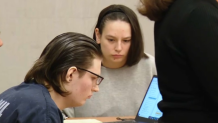
Prosecutors say her parents, Elizabeth Ucman and Brandon Copeland, starved her to death and charged each with 1st-degree murder. Both have pleaded not guilty. The trial is scheduled to begin next May.
Getting Delilah’s case file
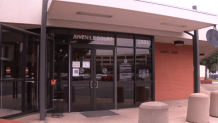
Ordinarily, juvenile records like Delilah’s case file never see the light of day. Initially, our team requested those documents from San Diego County Child Welfare Services, which just rebranded itself as the Child and Family Well-Being Department. However, that agency isn’t legally allowed to give out any information about cases involving children. The only exception to that rule involves petitioning the juvenile court system to release documents.
NBC 7 Investigates filed that petition in April of 2023. We attended a couple of court hearings where attorneys for Ucman tried to block our efforts, but ultimately the judge sided with our petition, granting us the records. The file details what social workers say happened, in their own words, every time they made a call or a visit tied to Delilah’s case. An expert we spoke with says the case file paints a picture of missed opportunities and what-ifs.
Delilah was a surprise
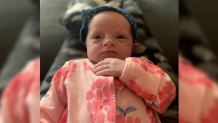
The documents show that Ucman didn’t know she was even pregnant. Social workers say she went to the emergency room on July 19, 2021, for stomach pains and discovered she was in active labor. Delilah was born early that morning.
About five months ago, Delilah’s maternal great-aunt Annie Chapman testified that she was scared when she first learned about the birth.
“I was terrified about what they were going to do to the baby,” Chapman told the court.
Chapman said she visited Ucman and Copeland at their apartment to meet Delilah three days after she was born. She testified that while there were efforts underway to clean the apartment by the couple’s friends, she was still alarmed by how filthy it was. Chapman told the court that both parents seemed detached from the situation and the responsibility of taking care of a baby.
Gallery: Social workers took photos of parent's apartment
“Immediately when I saw the cockroaches everywhere, I picked the baby up,” Chapman said. “And I tried to like, put on a plain face like I wasn't totally freaking out. There was dog poop in the corners. There [were] piles of trash everywhere.”
The case file reveals that Chapman successfully convinced her niece Ucman, and the baby’s father Copeland, to allow her to temporarily take custody of Delilah, at least until the new parents could clean the apartment. But in reality, Chapman told the court she wanted more for Delilah.
“I definitely took the position [that] this baby needs to be adopted,” Chapman said. “I felt there was no way they’d be able to keep a human alive.”
Social workers get involved
Delilah’s juvenile case file reveals that both Ucman and Copeland were clients of San Diego Youth Services. That agency is a county contractor that offers housing support and mental health services. The case file shows each parent had their own assigned caseworker.
The documents show that a member of Ucman's family contacted one of those caseworkers to report the birth of the baby, the conditions in the apartment, and their concerns about Delilah’s welfare.
That included Delilah’s maternal great-grandmother Adrienne Arnett.
“Every family member, I don’t know any family member who did not tell child protective services, not safe, this child will not survive,” Arnett told us.
The case file reveals it was that organization that contacted the county’s child abuse and neglect hotline. That immediately triggered a county investigation. Within 48 hours, a social worker met with Delilah’s parents and great-aunt. The social worker also inspected Chapman’s home, the parents’ apartment, and examined Delilah.
Mental health concerns

During the visit to the apartment, the social worker wrote that she could see exposed electrical wiring, dirty dishes, and spoiled food.
“There's a lot of things about filth that can be concerning health-wise, but in addition to that, it can be an indicator of mental health issues,” Nicol Stolar-Peterson told us.
NBC 7 Investigates spoke with Nicol Stolar-Peterson about this case. She spent more than a decade as a child abuse investigator in Riverside County and often testifies as an expert witness in child abuse cases. Stolar-Peterson is not involved in Delilah’s case, but NBC 7 Investigates shared details from the case file with her ahead of our interview.
Stolar-Peterson explained, “We're looking at things like: Are there pieces of glass on the floor? Are there feces on the floor? Something that could cause illness? Cockroaches moving around? Cockroaches can climb into children's ears.”

“Asking if there's mental health issues is not enough,” Stolar-Peterson said. “You could ask anybody that. And most people with mental health issues are not going to readily share that information…It has to shift away from ‘Do you have any mental health issues’ to ‘Tell me about a time that you were sad’ or ‘Tell me about a time that you were so upset,’ or ‘Tell me about a time where you felt frustrated.’”
There isn't, I think, enough training for social workers in how to recognize various mental health issues…
Nicol Stolar-Peterson
The case file would reveal a month after Delilah’s death, during jailhouse interviews with social workers, both parents disclosed serious mental disorders.
The social worker wrote, “Ms. Ucman reported that since being treated she has been really depressed and had to get back on anti-psychotic medication. She stated she has been diagnosed with PTSD and bipolar disorder.”
When speaking with Brandon, the social wrote that he said, “About two months in after you guys left, I started getting into a really bad head space, and I started getting irritable at the slightest thing. I have schizophrenia and it was acting up. I told Lizzie (Ms. Ucman) we should put Delilah up for adoption. I locked myself in the room because I was worried I was going to hurt her…”
“There isn't, I think, enough training for social workers in how to recognize various mental health issues and the types of questions to ask and then to really recognize those red flags that pop up,” Stolar-Peterson said.
Parents agree to Voluntary Services with social workers
But well before that jailhouse interview, during the first meeting with the social worker, documents show both parents expressed the desire to keep Delilah and clean up the apartment. They were also asked to demonstrate how to feed, change, and hold her.
Both parents agreed to Voluntary Services from CWS. That’s a type of social worker supervision in cases where children are at risk of abuse, neglect, or exploitation. Children may either safely remain in the home or in a voluntary out-of-home placement while the parents accept and participate in Voluntary Services.
That also included a Safety Plan, where the parents agreed to allow Delilah’s great-aunt Annie Chapman to keep Delilah until they cleaned the apartment and made it safe. They also agreed to attend parenting lessons.
Over the next eleven days, documents show more friends and family reached out to social workers, expressing concerns about Delilah’s safety if she were allowed to be returned to her parents.
“There is no reason to give this baby to two people who have such serious, serious problems,” Delilah’s great-grandmother Adrienne Arnett said.
Chapman testified that social workers told her they couldn’t prevent the reunification or involve the court system, unless they became aware of physical abuse or neglect.
“So in order to take it to court, they would have to show prima facia,” Stolar-Peterson told us. “So essentially on face value, there was enough evidence to show that this child is in imminent danger. So that level of evidence would have had to have been proven in a court of law.”
Delilah is returned to her parents
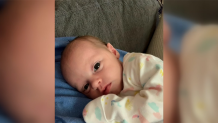
The Safety Plan deadline was set for August 16, 2021. That’s when Delilah was returned to Ucman and Copeland. After that happened, the case file reveals that tensions rose between the young parents and members of their family, who they say the parents saw as being too intrusive.
Documents show a Safety Mapping meeting was held at the apartment a week later, which turned into a screaming match between Copeland and a cousin. It was broken up by a San Diego Youth Services caseworker before it became violent.
Ucman and Copeland told the social worker they didn’t want family involved anymore. Chapman says that’s when social workers stopped providing her and other relatives with updates about Delilah, citing confidentiality laws.
The system completely failed, it crashed. It allowed a gorgeous baby girl to be tortured.
Adrienne Arnett, Delilah’s great-grandmother
Stolar-Peterson says concerned loved ones should go around the social worker if they think a child is in danger.
“Some family members might call and ask, ‘Who's the supervisor? I want to speak to them’,” Stolar-Peterson said. “‘I want to speak to a manager. I want to speak to the Board of Supervisors.’ There's a lot of different things that I've seen families do when they feel like they're not being heard and or they've called law enforcement and said, ‘Hey, I'm calling CPS and I'm worried that this baby's going to die. Can you please go check on the baby’?”
Delilah’s abnormal weight loss
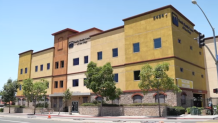
On September 20, 2021, when Delilah was two months old, documents show Ucman’s San Diego Youth Services caseworker went with her and the baby to a health checkup at Family Health Centers of San Diego.
The doctor reported that Delilah was suffering from abnormal weight loss, and wrote that she needed to go immediately to the emergency department at Rady Children’s Hospital. That never happened. The check-up was the last time the baby was seen alive by a doctor.
It appears social workers weren’t aware of the doctor’s concerns. In her notes, the social worker wrote that she spoke to the San Diego Youth Services caseworker, who said “...everything went well.” There’s no mention of the abnormal weight loss or the ER.
“We have a child who's losing weight and now you have reasonable suspicion,” Stolar-Peterson said. “But if child protectors don’t know that that's happening during that time frame, they're not going to be taking any action.”
NBC 7 Investigates asked Family Health Centers of San Diego if they knew about the open child abuse and neglect investigation; if they were ever in contact with the county; and if they were required to report the abnormal weight loss as part of their mandated reporter duties. They told us they couldn’t comment.
Social worker visits become less frequent
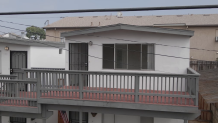
Over the next month and a half after that check-up, contacts with Delilah and her parents were less frequent. The social worker’s log states the parents often didn’t answer the phone, didn’t return messages, and didn’t answer the door. The couple also missed mental health services appointments and parenting classes.
“Anytime a social worker cannot lay eyes on their kid, so a kid on their referral or a kid in one of their cases, that should be a big, huge concerning red flag,” Stolar-Peterson said.
It wasn’t just social workers who weren’t seeing Delilah, it was also family members.
“I contacted child protective services. I called and I texted,” Arnett told us. “I told her, you’ve got to get over there. I know there’s something going on. I know the baby’s in serious danger. You’ve got to go there. When you can’t get a picture of a baby, there’s a problem.”
At this time, the county’s child abuse and neglect investigation was still open. The parents were still receiving Voluntary Services. The county’s policy protocols state, “the Voluntary Services social worker should have at minimum two to four contacts with the parents and children per month.”
But the social worker's notes reveal she did not see Delilah or her parents in person or virtually between September 16 and November 10, when Delilah died. That’s 55 days. She made calls, and went by the apartment, but said Delilah’s parents never answered the door.
“That is too long to not see a kid,” Stolar-Peterson said.
Delilah’s death
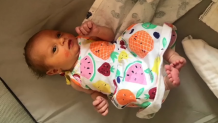
When paramedics responded to Ucman's 911 call on November 9, 2021, first responders told social workers the apartment was a mess, with feces everywhere. They reported that they found Delilah on the floor. She wasn’t breathing and couldn’t be saved. Doctors described the death as extreme starvation.
“The system completely failed, it crashed,” Arnett told us. “It allowed a gorgeous baby girl to be tortured.”
Stolar-Peterson understands hindsight is 20/20, but believes the county should have brought this case before a judge.
“The benefit of court would have been that a guardian ad litem counsel would have been appointed to that baby, whose only job is to look out for the welfare and safety of the baby,” Stolar-Peterson said. “And that's probably the big miss, is why that wasn't offered.”
No comment from the county

NBC 7 Investigates reached out to the county multiple times, asking to have a conversation about what happened in this case and discuss departmental policies. The county wouldn’t make Executive Director Kim Giardina or any county employee available.
No comment from the San Diego Youth Services
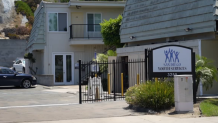
San Diego Youth Services also wouldn’t answer any of our questions or even provide a statement, citing the active legal case and privacy rights.

